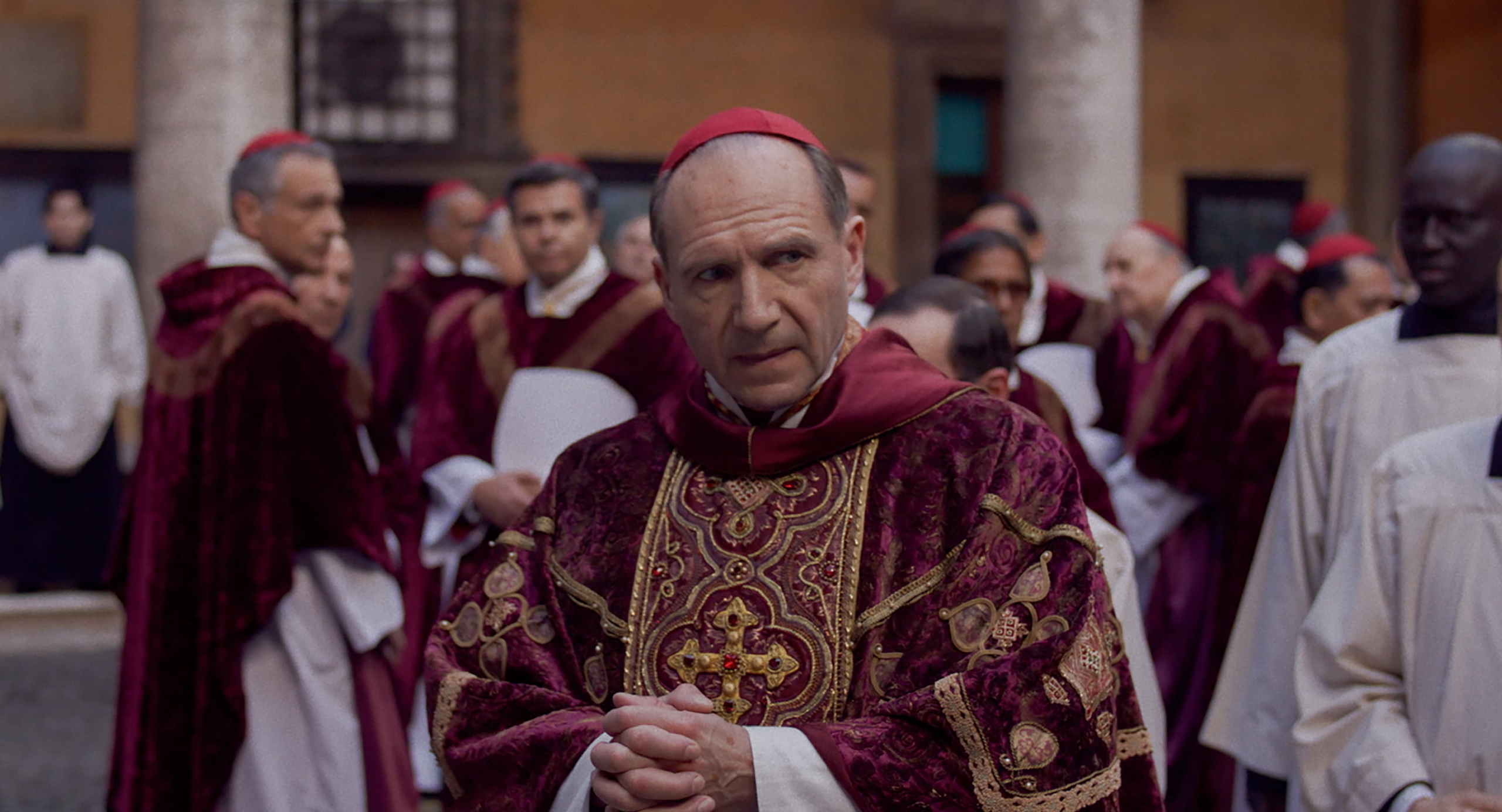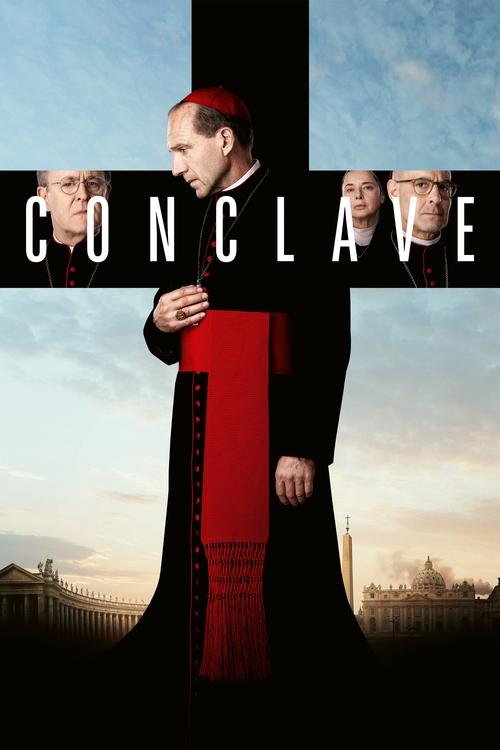Conclave – Film Review
Published November 28, 2024

Edward Berger’s Conclave offers a meticulously crafted exploration of faith, power, and human complexity within the hallowed walls of the Vatican. Adapted from Robert Harris’ acclaimed novel by Peter Straughan, this mystery thriller immerses viewers in the clandestine world of a papal election, led by the commanding performances of Ralph Fiennes, Stanley Tucci, John Lithgow, Sergio Castellitto, and Isabella Rossellini. With its rich narrative, tense atmosphere, and thematic depth, Conclave deftly combines a tightly wound thriller with a meditation on morality and doubt.
The film opens with the death of the Pope, setting the stage for the enclosed ritual of electing his successor. Cardinal Thomas Lawrence (Ralph Fiennes) serves as the audience’s guide into the arcane proceedings of the conclave. As the Cardinal-Dean, Lawrence is a man of quiet conviction and internal struggle, brought to life through Fiennes’s subtle and layered performance. His journey of navigating political alliances and personal revelations becomes the emotional backbone of the story.
Berger’s direction masterfully encapsulates the secretive and claustrophobic nature of the conclave. The Vatican becomes a character of its own, with its marble corridors, dimly lit chapels, and towering frescoes emphasizing the gravity of the decisions being made. Cinematographer James Friend accentuates this atmosphere with moody lighting and tight framing, drawing viewers into the intense and introspective world of the cardinals.
The ensemble cast is nothing short of stellar, each actor embodying their character’s moral and ideological nuances. Stanley Tucci shines as Cardinal Bellini, a progressive thinker whose idealism is tested by the conclave’s political machinations. Tucci’s measured charisma brings warmth and complexity to Bellini, contrasting with John Lithgow’s Cardinal Tremblay, whose calculated ambition adds a menacing undercurrent. Lithgow delivers a performance brimming with quiet menace, making Tremblay a formidable force without veering into caricature.
Sergio Castellitto’s portrayal of Cardinal Tedesco is equally compelling, presenting a traditionalist whose rigidity masks a simmering resentment toward modernity. Isabella Rossellini’s Sister Agnes provides a grounding presence amid the male-dominated narrative, her character’s devotion and wisdom subtly steering critical moments.
Straughan’s screenplay cleverly balances the procedural intrigue of the papal election with the personal dilemmas of its characters. The narrative explores the moral complexities of leadership and faith without resorting to black-and-white resolutions. Each candidate for the papacy represents a distinct ideological perspective, ensuring the stakes feel deeply personal and globally significant.
While the film maintains a steady tension throughout, it is not driven by action but by dialogue and revelation. Every whispered conversation and sideways glance carries weight, underscoring the power dynamics at play. Berger allows these moments to breathe, trusting the audience to piece together the puzzle alongside Lawrence.
Conclave excels in its examination of faith as both a personal and institutional force. Cardinal Lawrence’s sermon on embracing doubt sets the tone for the film’s exploration of uncertainty as a cornerstone of faith. This thematic thread is mirrored in the personal journeys of the cardinals, whose secrets and struggles highlight the humanity behind the Church’s grandeur.
The film also delves into the collision of tradition and progress, with characters like Bellini and Tedesco embodying the tension between these forces. The inclusion of Archbishop Benitez, a mysterious figure from outside the established hierarchy, adds a layer of intrigue while challenging the Church’s notions of identity and inclusion.
Berger’s ability to craft tension from subtlety is on full display in Conclave. The director employs silence and stillness to heighten the suspense, creating a sense of unease that permeates the film. His restrained approach allows the performances and dialogue to shine, while the occasional visual flourish—such as a sweeping shot of the Sistine Chapel—reminds viewers of the grandeur of the setting.
The film’s pacing is deliberate but never sluggish, with each scene contributing to the narrative’s mounting tension. Berger’s attention to detail, from the cardinals’ red robes to the procedural elements of the election, adds an authenticity that grounds the film in its world.
The production design deserves special praise for meticulously recreating the Vatican’s opulence. The Sistine Chapel, in particular, is rendered with stunning fidelity, its grandeur juxtaposed with the cardinals’ intimate deliberations. Volker Bertelmann’s score complements the film’s tone, blending solemn choral arrangements with subtle orchestration to underscore the weight of the story.
While Conclave is a triumph in many respects, it is not without its flaws. The film’s reliance on dialogue-heavy scenes may test the patience of viewers expecting more conventional thriller elements. Additionally, some characters, such as Sister Shanumi, feel underdeveloped, their motivations and arcs left somewhat ambiguous.
Conclave is a compelling mystery thriller that transcends its genre to explore profound questions of faith, power, and identity. Edward Berger’s assured direction, combined with outstanding performances from its ensemble cast, makes the film a thought-provoking and emotionally resonant experience.
While its deliberate pacing and dense narrative may not appeal to all viewers, those willing to engage with its intricacies will find a film that lingers long after the credits roll. Conclave is a testament to the power of storytelling rooted in humanity, and it stands as one of the year’s most intellectually rewarding films.
